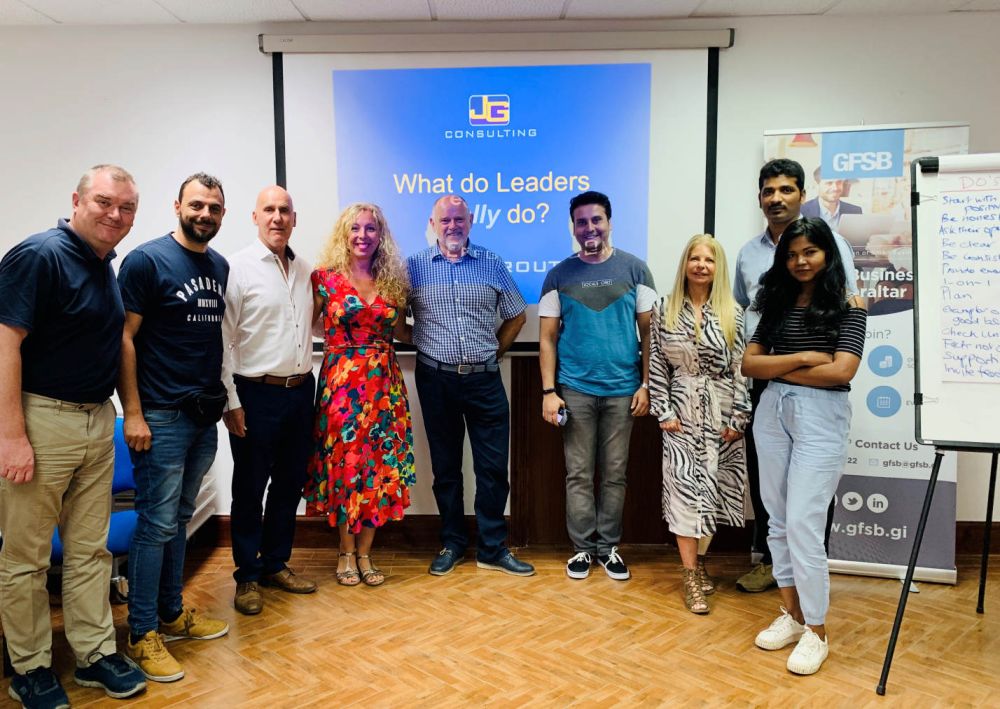
What Do Leaders Really Do? A Seminar led by Jeff Grout
Leadership is one of my favourite topics because in truth, it is not something confined to any one person, or position, or profession. We can all be leaders no matter what age or stage of life we are at. We can lead at home (raising children well requires leadership skills), at school with our peers, at work with our colleagues, within our group of friends especially when any are facing challenges, in our local sports, charity and other associations and organisations. To lead in my opinion, is about supporting in other’s growth. As a Holistic Lawyer I hope to lead in supporting my clients’ personal and professional growth, whenever and wherever possible.
When Pete Yeoman invited me to attend this Seminar led by Business Speaker, Consultant and Coach Jeff Grout, I said yes immediately! ‘What Do Leaders Really Do?’ is also the title of Jeff Grout’s book, co-authored with Liz Fisher. What is interesting about Jeff is that he has a wealth of knowledge and experience of having interviewed many highly successful people over decades, including: Sir Richard Branson, Sir Bob Geldof, Nicola Horlick and Lord Sebastian Coe. He has been inspired and informed by their insights, on what it means to achieve success and be a Leader. He has shared his knowledge and experience in the books he has authored What Do Leaders Really Do?.
Jeff is an expert on leadership which includes: people management, team building, peak performance and recruitment and retention. I was pleased to attend as the Seminar added another layer of knowledge and experience for my work with local Trade Unions and individuals on issues affecting employers and employees, including the issue of Workplace Bullying. I include, ‘Workplace Bullying’ because in my mind, where and when this happens is very much in the absence of Leadership.

What then are some of the qualities/ characteristics of a Leader according to Jeff?
- Having ‘people skills'
- Creating the right (respectful) culture
- Setting a clear direction for the team
- Creating the space and time to look ahead and anticipate and discuss future challenges and opportunities
- Goal setting with a maximum of 3 priorities
- Decluttering the agenda – making clear to the team what are they not going to do, as well as what they are going to do!
- Leaders must have followers; or else they are not Leaders!
Examples of dysfunctional Management highlighted by Jeff include where there is:
- Little or no team effort
- People are acting in their own self-interest
- People are inhibited from raising issues with Senior Management
- ‘Muttering in corners’
- Senior Management is trying to do too much and therefore has no time to properly Lead
- No followers.
Jeff shared with us what he calls the 'T- test' to find out whether employees are pulling in the same direction and do they have a sense of purpose? If everyone in the organisation is asked the 3 questions below, can they provide answers to them? Will those answers be aligned and clear?
Qu. 1 What is the overall business objective?
Qu. 2 What are the immediate priorities?
Qu. 3 What are you personally doing to contribute to the priority?
In my personal experience, Leaders really do care about people. They seek to positively influence, not to exert authority over. They seek to educate, inspire, motivate and empower others by 'walking the talk' and being the example. They are accessible. They are authentic, respectful, compassionate and empathetic, listening to the needs of others, present and mindful. They support and provide opportunities for personal and professional growth of their team members. Successful leaders work hard at developing their leadership skills and in order to take that action, they remain humble and open to learning to becoming their best selves.
For further information, please contact: amber@amberlaw.com
Latest Blog Posts
- Justice as Peace
- Lawyers as Healers- Injustices as Breaches in Our Human Community
- A Non-Profit, Philanthropic Law Firm!
- How are Spirituality, Law, and Politics Linked?
- Why & How Cases Are Linked To Intergenerational Trauma
- Peace and Pain In The Justice System
- From Despair to Peace in Amber’s Holistic Process - Jeff's Story
- From Anger to Justice as Peace
- Audacious Visions Of A Better Future For Lawyer Well-being
- Why and How Children Harm Themselves
- How Your Level of Self Care is Linked to Why Your Child May Refuse Contact
- 10 Ways Separating Parents May Unconsciously Emotionally Harm Their Children
- What Children See in Childhood, The Inner Child in Their Adulthood Repeats An Awakening About Domestic Violence
- The ‘Outer Justice’ System
- The Inner Justice System
